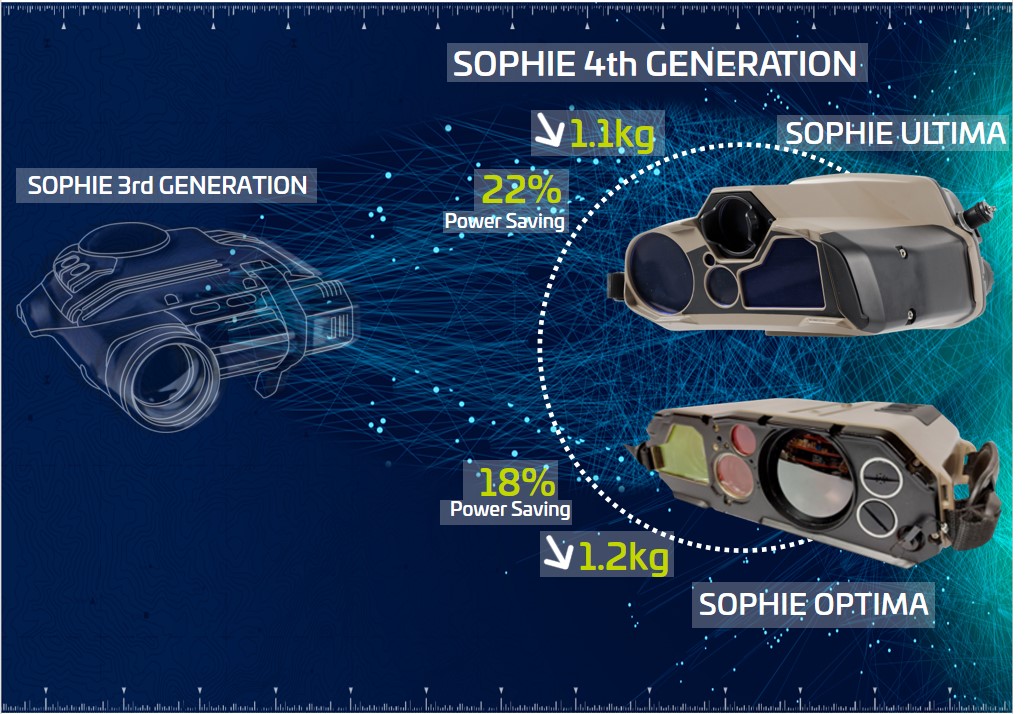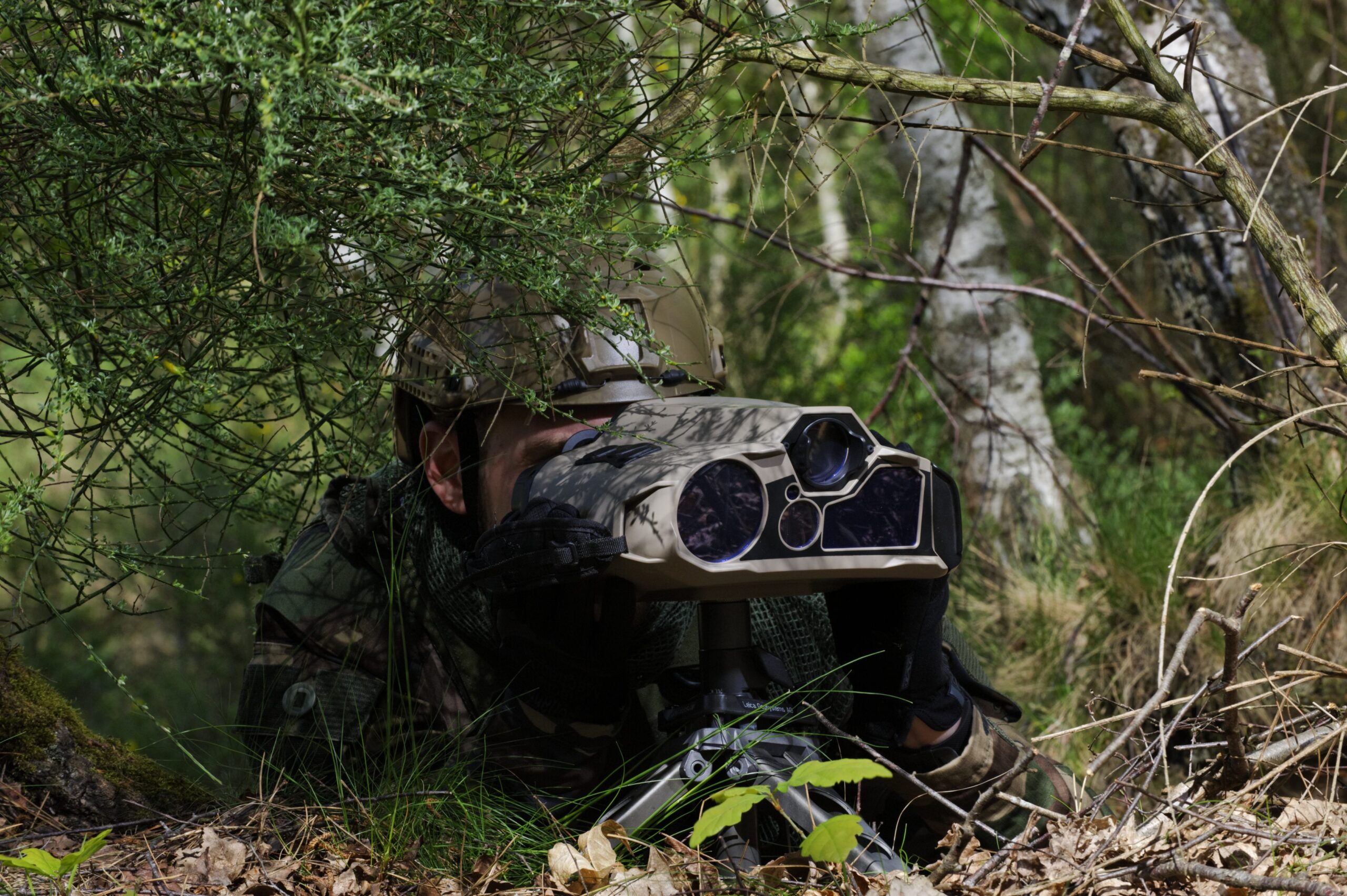Sophie Ultima and Sophie Optima: the best allies in the field

Smaller, lighter, more energy-efficient products offer the best response to operational requirements, reducing the burden on the soldier, simplifying logistics and helping to minimise the use of natural resources.
The SwaP approach is perfectly aligned with eco-design objectives, which aim to reduce the environmental impact of products throughout their life cycle, from the use of raw materials, through production, distribution and operation to end of life disposal or recycling.
The 4th generation Sophie family is where optimised SwaP meets eco-design. The new thermal imagers combine several sub-assemblies (infrared module, direct-view optical day channel, rangefinder, laser pointer, GPS and WiFi module) in a single package.
This offers a weight saving of 1.1 kg for the Sophie Ultima and 1.2 kg for the Sophie Optima (compared to previous generations of handheld thermal imagers), power savings of nearly 22% for Sophie Ultima and 18% for Sophie Optima, and a reduction in the overall size of both models. In addition, the choice of the IR detector and the way the systems manage peripherals and inactive functions have further optimised power consumption and make it possible to use smaller batteries.
Thales has announced plans to apply the principles of eco-design to all its new products by 2023, and the fourth generation of Sophie thermal imagers is already ahead of the curve!
All this work has made it possible to reduce the weight and consumption of our equipment and thus to reduce its carbon impact.

What is eco-design?
Eco-design is the integration of environmental aspects from the earliest design and development phases in order to reduce negative environmental impacts throughout the product life cycle with equivalent or superior service. The principles of eco-design support the use of sustainable resources and materials that are less harmful to users, production staff and the environment. For new equipment developments, weight is reduced as much as possible to limit greenhouse gas emissions, and end-of-life dismantling and recycling procedures are an integral part of this approach.
Through its commitment to eco-design, Thales is seizing the opportunity to design products that respect the principles of sustainable development and environmental protection, which is “a national concern”, as French Armed Forces Minister Florence Parly recently emphasised.


Recent Comments